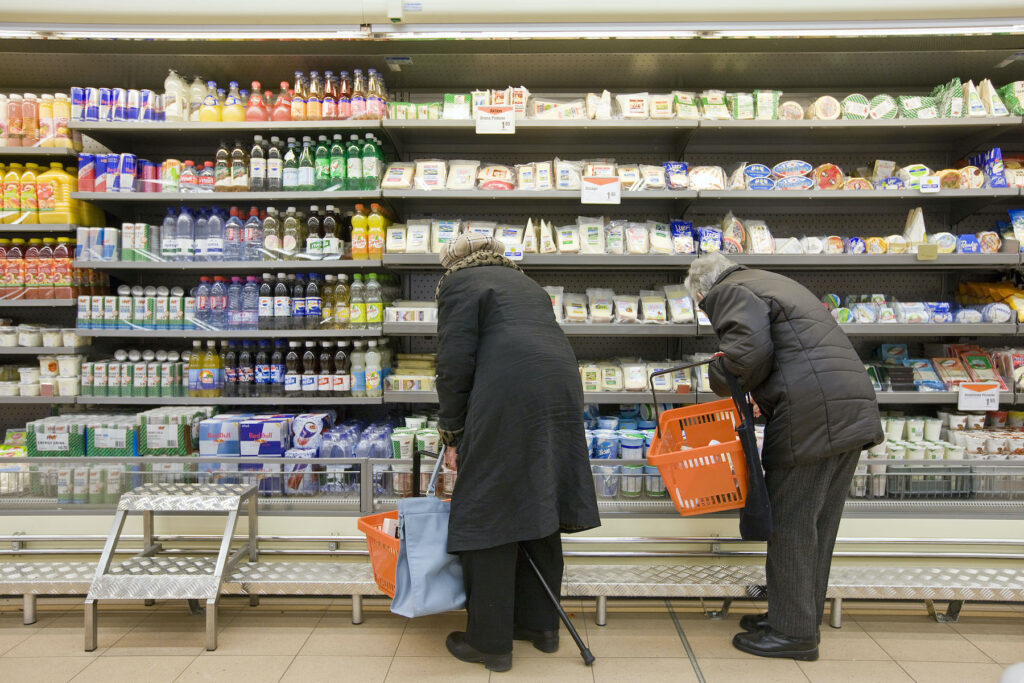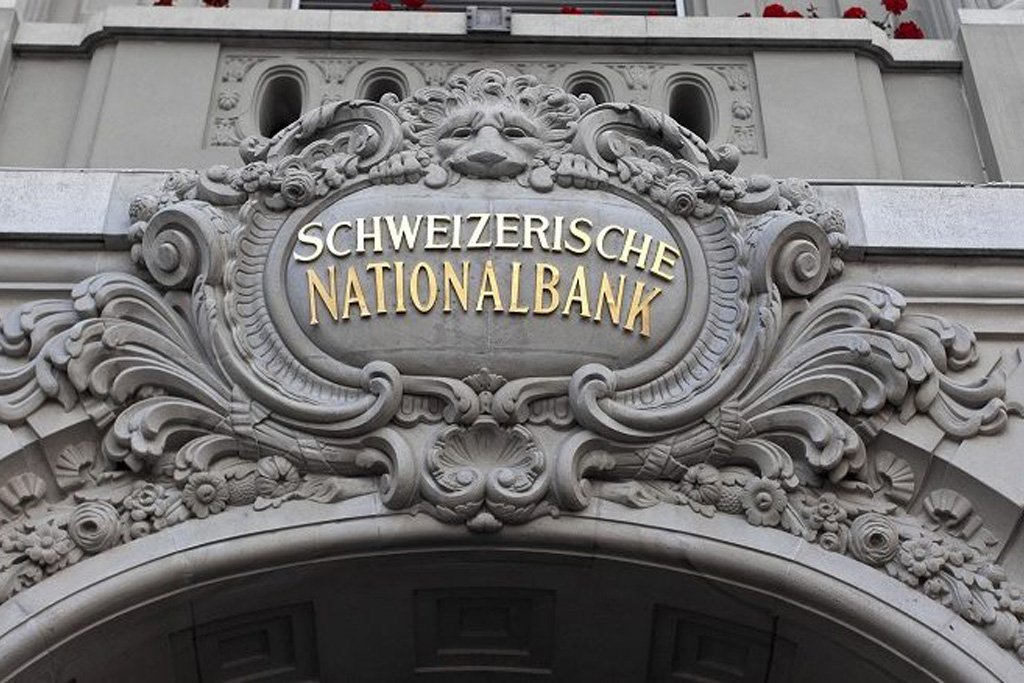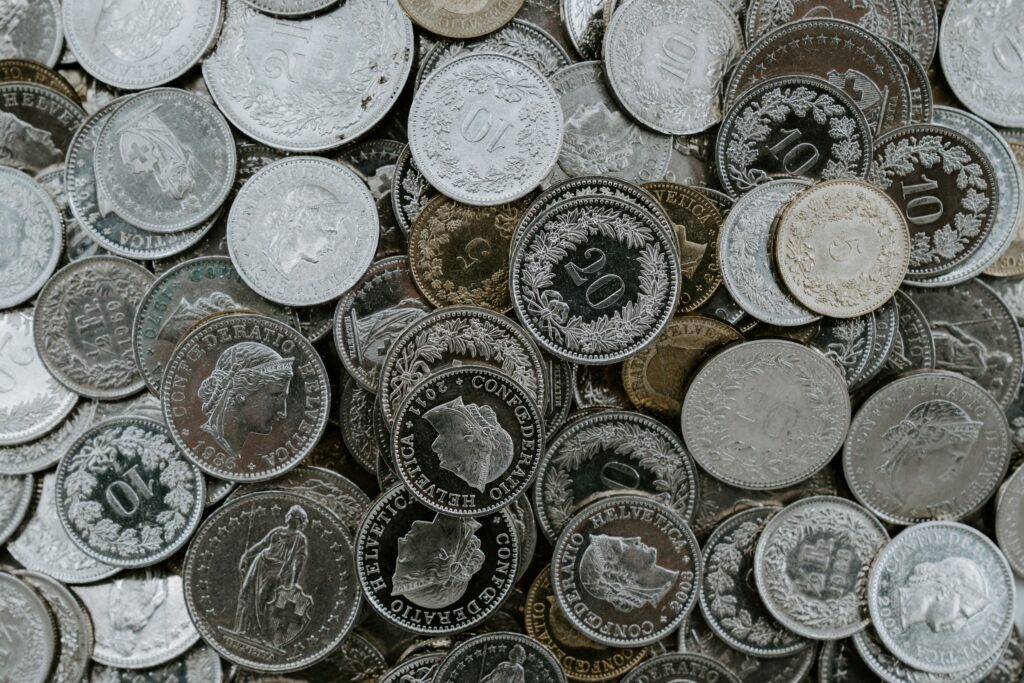Mo., Juni 5th 2023

(Keystone SDA) Inflation in Switzerland fell significantly in May. It was last this low in February 2022, before the start of the Russian war of aggression in Ukraine.
Specifically, annual inflation in May 2023 fell to 2.2% from 2.6% in April, as the Federal Statistical Office (BFS) announced on Monday. In the first two months, it rose to 3.4% due to higher electricity and flight prices, since then it has been falling steeply.
With the current value, Switzerland’s inflation rates remain well below those of the euro zone or the USA, where values of 6.1% and 4.9% (April) were last reported.

Domestic goods cost 2.4% more in May than a year earlier, and imported goods 1.4%. This means that imported goods in particular have not risen as much as in April. Core inflation, which excludes volatile commodities like food, energy and fuel, also fell, to 1.9% from 2.2%.
Among the main groups shown, food and alcoholic beverages in particular are significantly more expensive at more than 5.3% than a year ago. Swiss are paying significantly more for leisure and culture (+3.9%), housing and energy (+3.2%), as well as restaurants and hotels (+3.1%). On the other hand, the cost of communications (-3.1%), transport (-0.5%) and healthcare (-0.3%) are less expensive now than in May 2022. Overall, goods cost 2.7% more than a year ago, services 1.9%.

Compared to the previous month, the national consumer price index (CPI) rose by 0.3% to 106.3 points. According to the BFS, the increase was due, among other things, to higher prices for apartment rentals and package tours abroad. Various groceries also cost more. Meanwhile, the prices for air transport and the extra-hotel industry as well as for heating oil and diesel fell in a monthly comparison.
The fact that annual inflation fell significantly compared to the previous month despite the price increase is mainly due to statistical reasons (base effect). In May last year, for example, prices rose by a high 0.7% compared to the previous month. Now, exactly one year later, this effect has disappeared from the statistics, which has contributed to the lower annual inflation.
The significant drop in inflation is also well received by economists. It is particularly pleasing that the price increases for services have remained below 2% on an annual basis, says Karsten Junius from Safra Sarasin. This speaks for only moderate wage pressure and that the second-round effects from last year’s surge in inflation are not as strong as in most other countries. For his part, Alexander Koch from Raiffeisen Switzerland emphasizes that core inflation has already fallen slightly below the 2% mark again after a brief excursion.
The decline in inflation was mainly due to the sharp fall in oil prices year-on-year, as explained by UBS economist Alessandro Bee. In May 2022, for example, the price of the Brent variety was USD 112 per barrel on average, but only USD $76 per barrel in May 2023. This effect should also increase further in June, he emphasized. Overall, according to BFS statistics, petroleum products were 16.5% cheaper than a year ago.

The most recent development should also reassure the Swiss National Bank (SNB), as inflation is coming significantly closer to its target range of 0% to 2%. In order to achieve this, it has already increased its key interest rate four times in the last 12 months from -0.75% to 1.5% most recently.
Safra Sarasin’s Karsten Junius now expects a final hike of 25 basis points at the next interest rate meeting on June 22nd. Alessandro Bee from UBS also expects another move of 25 basis points. While the fall in core inflation below 2% is an encouraging sign, it shouldn’t stop the SNB from raising interest rates further in June, he believes.
According to Alexander Koch from Raiffeisen, the SNB could even adjust its inflation projections downwards for the first time in a long time at the June meeting and thus signal correspondingly less need for further interest rate hikes.
Dieser Artikel wurde mit Genehmigung von Keystone SDA nachgedruckt.
